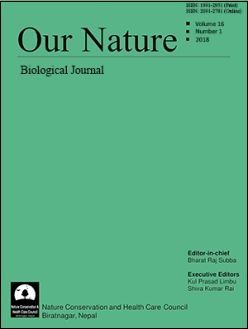Substitution of chemical fertilizer nitrogen through Rhizobium inoculation technology
DOI:
https://doi.org/10.3126/on.v16i1.22121Keywords:
Legume crops, Biomass, Inoclant, Strains, symbiotic effectiveness, Mucuna pruriensAbstract
Nitrogen is one of the most essential elements for plants growth and development. Urea is commonly used as a substitute for chemical nitrogen. Rhizobium inoculation technology for legume crop was evaluated in a number of field experiments comparing with 80kg urea per hectare application. The inoculation and urea application trial showed almost similar biomass accumulation, nodule number and nodule dry weight compared to un-inoculated control. The symbiotic effectiveness with inoculated and urea application showed similar results. The inoculant strains isolated locally from Mucuna pruriens (velvet bean) were found suitable for inoculants production. The bio-technology of inoculation can be a promising and cheap alternative of urea for the legume crops.
Downloads
Downloads
Published
How to Cite
Issue
Section
License
This license enables reusers to distribute, remix, adapt, and build upon the material in any medium or format for noncommercial purposes only, and only so long as attribution is given to the creator.




